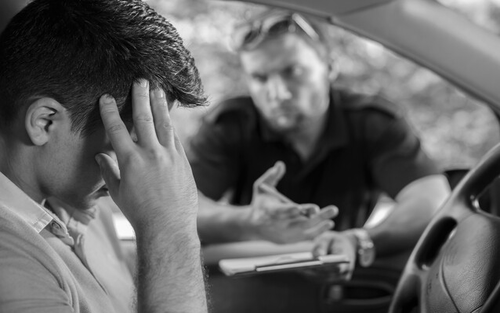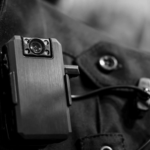Contributor: Adam Justinger
Introduction
Most people in some capacity have had communications with cops. This could have been a result of an emergency/accident, being pulled over for a traffic violation, helping you get your cat down from a tree, or for a plethora of other reasons. While the police play a vital role in our society, Americans also have a constitutional right that protects them against self-incrimination. So, what are you supposed to do if you are confronted or stopped by a police officer and are getting investigated for a crime?
What Do I Have To Do?
The United States Supreme Court has held that States can require an individual who is being questioned to provide his or her name in the course of a stop. These statutes are commonly referred to as “stop and identify” statutes. North Dakota has a stop-and-identify statute. Under the statute, a police officer may stop any person in a public place if the officer has reasonable suspicion that an individual is committing, has committed, or is about to commit a crime and demand the person to identify themselves. While the law requires you to identify yourself, it does not require you to incriminate yourself.
After I Identify Myself, What Should I Do?
Under the Fifth Amendment of the United States Constitution and Article I Section 12 of the North Dakota Constitution, an individual has a right against self-incrimination. As such, an individual can refuse to answer questions, refuse to make potentially incriminating statements, or refuse to testify at a trial in any criminal case.
Although this is an extremely sacred right, many people voluntarily speak with law enforcement and incriminate themselves. Most of the time, it is due to people not realizing that they do not have to speak to law enforcement. In addition, law enforcement officers go through vigorous training and are taught how to question, interview, and interrogate individuals. Some law enforcement officers even take advanced training classes to help with these skills. Officers will commonly use statements like “this will be much easier if you’re just honest with me” or “We have all made mistakes, just tell me what is going on” to try and get individuals to waive their constitutional right. However, the truth of the matter is that the only person these statements help is the police and the prosecutor charging you with a crime.
So, what should you do in a situation where a law enforcement officer is questioning you? You can politely say “I do not want to discuss my day with you officer” or “I am invoking my right to remain silent and will not speak to you until my attorney is present.” Either of these statements, or any variation of these statements, would be sufficient. After invoking this right, it is important to remain silent until you can contact an attorney. If you voluntarily re-engage with police, any statements you provide could be used against you.
I Was Arrested; Now What?
When and if you are arrested, law enforcement will generally read you what is referred to as the Miranda warnings. These warnings stem from the United States Supreme Court case Miranda v. Arizona. These rights apply only when an individual is susceptible to “custodial interrogation.” Custodial interrogation is questioning initiated by a law enforcement officer after a person has been taken into custody or otherwise deprived of his freedom of action in any significant way. For more on Miranda, check out one of our past blogs. If you are arrested, it is generally in your best interest to invoke your right to remain silent until you have a knowledgeable and experienced criminal defense attorney present to advise you.
In Conclusion
In North Dakota, if an officer has reasonable suspicion you have violated or are about to violate the law, you have to identify yourself. After you identify yourself, exercise your constitutional right to remain silent and ask to speak with an attorney. If you need immediate assistance, you can contact Adam Justinger, day or night, by calling his direct line at 701-484-3618.
For help with criminal matters in North Dakota or Minnesota, please contact SW&L Attorneys at 701-297-2890. For future articles, check out our blog.
This article is for informational purposes only and is subject to our disclaimer.









